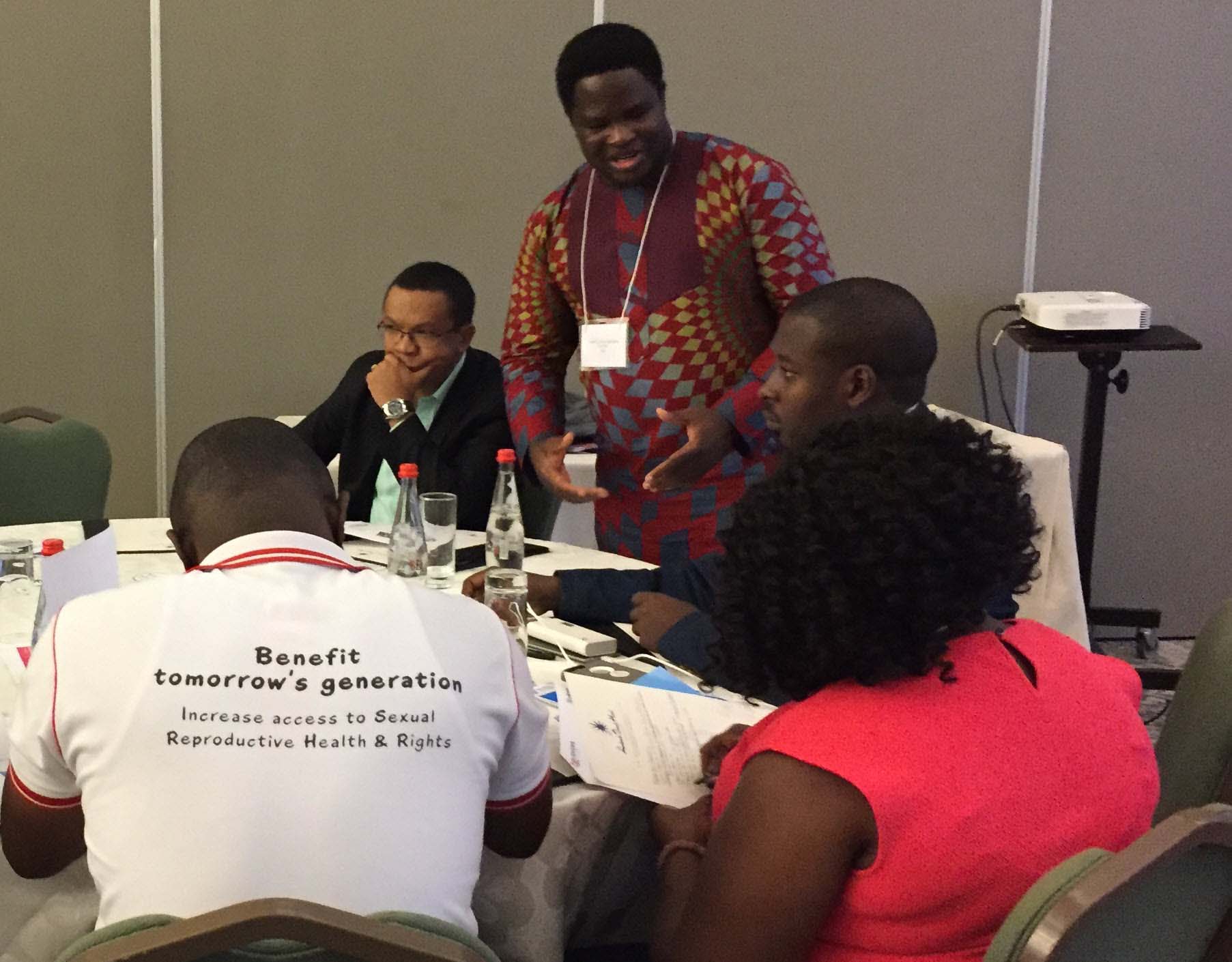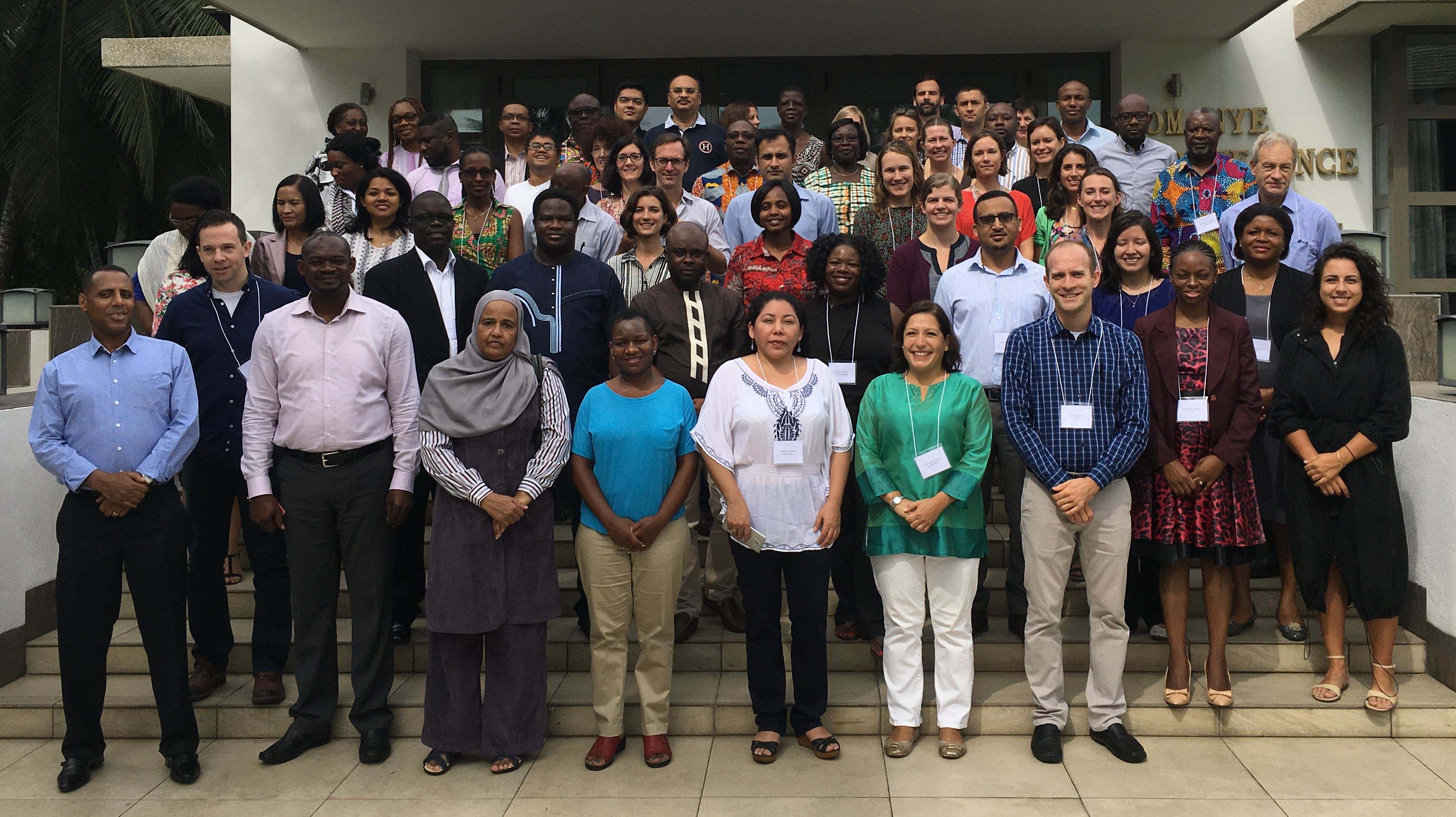Examining the future of social franchising

In late September, more than 60 individuals who work in social franchising met in Accra to discuss how to improve the quality of social franchises for health, as well as their sustainability.
Social franchising has been shown to successfully improve access, use, and quality of family planning and other priority health services. However, the current models face challenges of high costs and tradeoffs between achieving scale and maintaining quality.
SHOPS Plus co-sponsored the event, along with three partners from the USAID-funded Support for International Family Planning Organizations program: the International Planned Parenthood Federation, Marie Stopes International, and PSI. Representatives from all sponsoring organizations gave presentations, including USAID.
Quality and sustainability
The two major themes of the workshop were quality and sustainability. To get an inside view, participants visited nearby social franchises on the first day of the workshop. Over the next two days, donors and representatives of implementing organizations gave their perspectives on a range of issues. Presentation topics included monitoring and measuring quality, health financing, contracting with governments to provide family planning services, and obtaining business improvement loans. The International Planned Parenthood Federation, Marie Stopes International, and PSI shared experiences from their franchises.

Looking ahead
In a closing panel, directors of the Support for International Family Planning Organizations program shared their thoughts on the future of social franchising. The panelists emphasized the importance of using a total market approach and a need for continued research.
This meeting builds on a SHOPS Plus webinar on promising operational approaches for social franchise networks. View a recording of the webinar.
Take a look at the meeting notes, agenda, and PowerPoint presentations from the workshop.